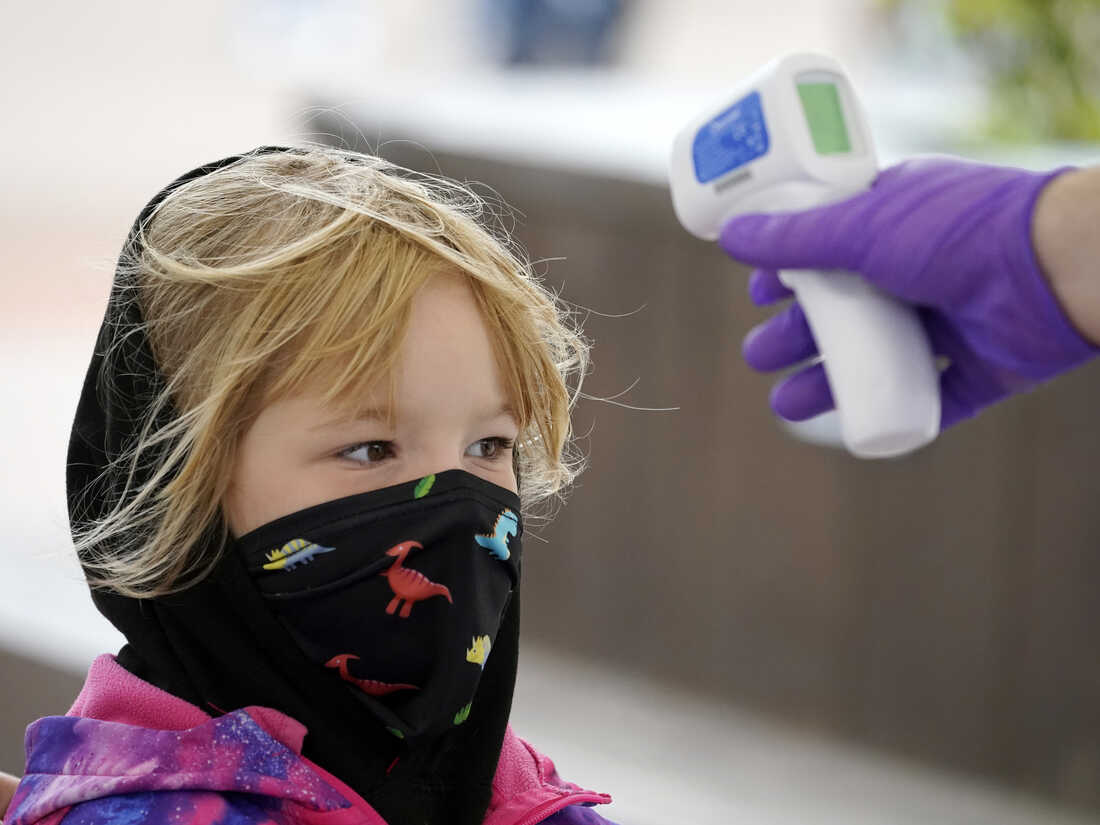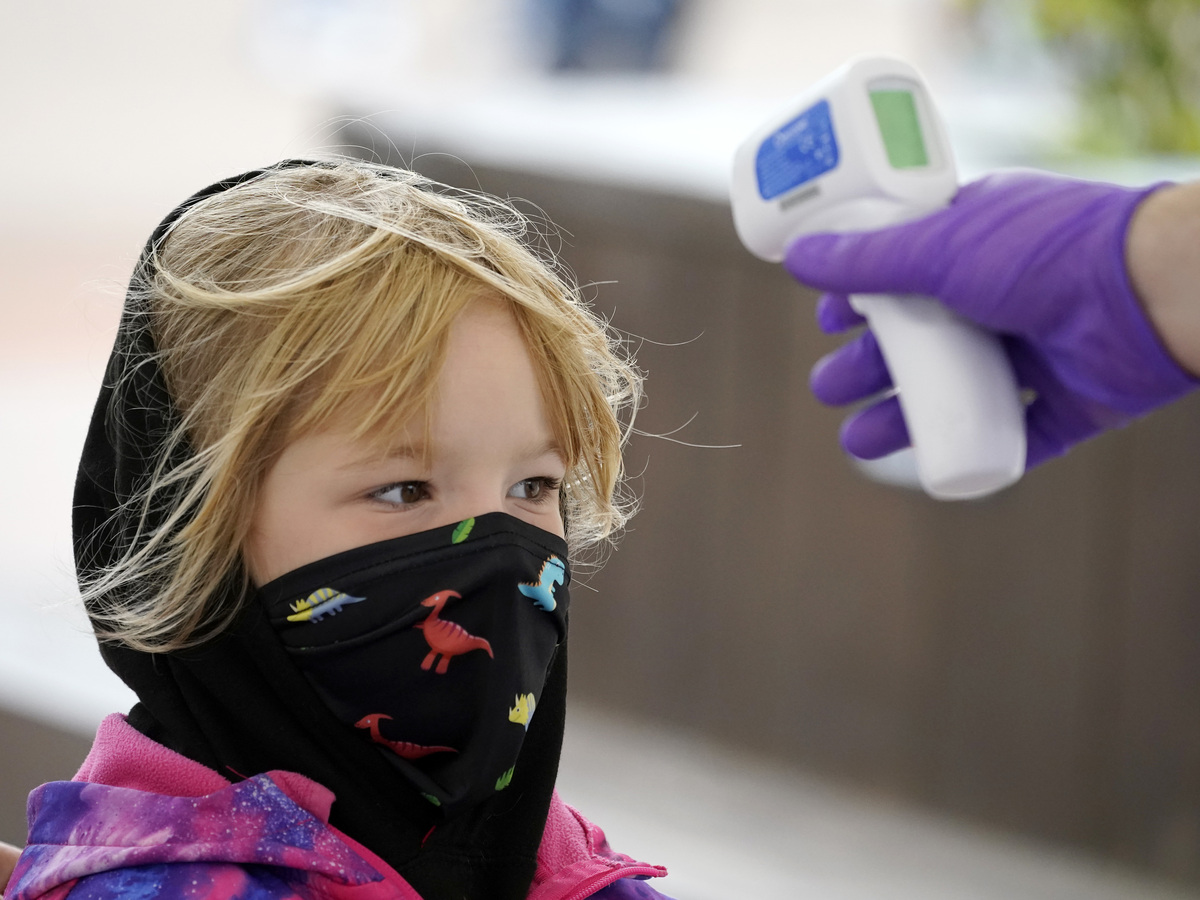
Children have become masters at the temperature check. Christopher Furlong/Getty Images hide caption

Children have become masters at the temperature check.
Christopher Furlong/Getty ImagesNew daily cases are at an all-time high. The good news: vaccines and boosters have never been more widely available — but not for everyone. Children five and under still do not have a vaccine available as the omicron surge stretches health care workers thin.
For advice on navigating the pandemic in this moment, we turn to Dr. Ibukun Kalu, a pediatric infectious disease doctor at Duke University.
Additional reporting in this episode from NPR's Allison Aubrey.
Email us at
This episode was produced by Brent Baughman and Jonaki Mehta. It was edited by Lee Hale, Christopher Intagliata, and Scott Hensley. Our executive producer is Cara Tallo.

 Live Radio
Live Radio